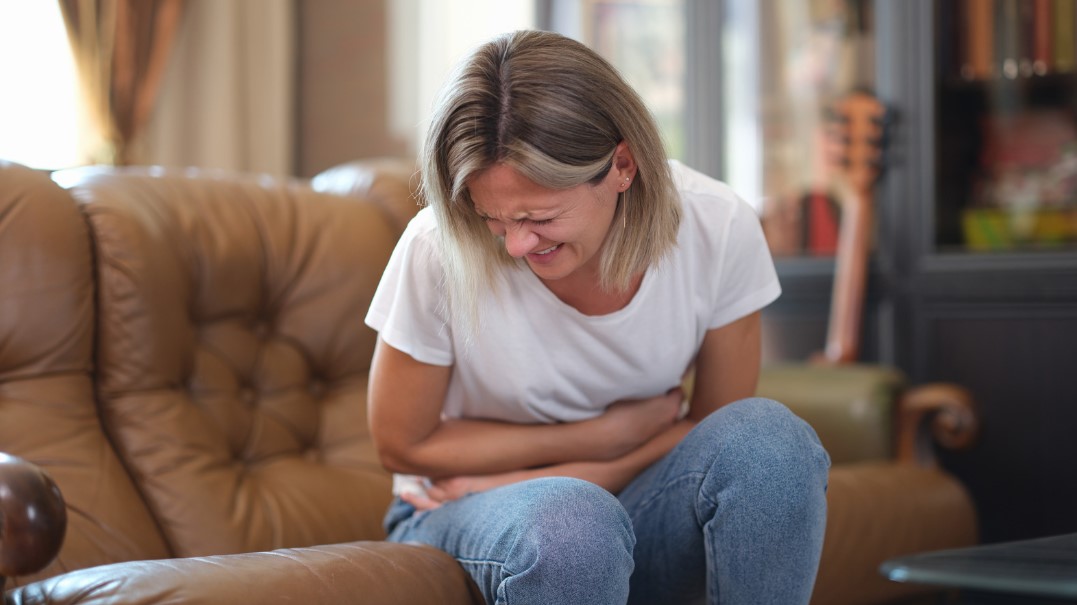Dealing with Diarrhoea is never pleasant. Whether it’s a short-lived episode or a recurring issue, the discomfort and inconvenience can disrupt your everyday life. But fear not! In this blog post, we’ll explore effective ideas on how to stop Diarrhoea and get back to feeling your best.
From simple dietary modifications to stress management techniques, we’ve got you covered with practical tips that will help you regain control of your digestive system. So, let’s dive in and bid farewell to those watery stools once and for all!
What is Diarrhoea and its Symptoms?
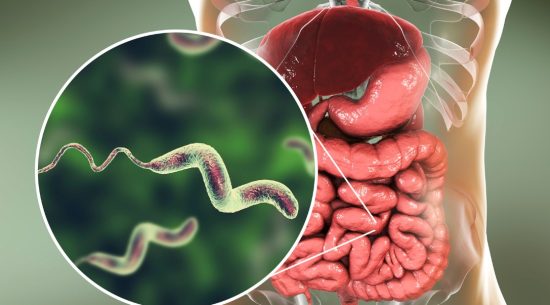
Diarrhoea is a common condition characterized by loose, watery stools that occur more frequently than normal. It is typically caused by an infection in the gastrointestinal tract, such as a viral or bacterial infection, or it can result from certain medications, food intolerances, or digestive disorders.
The common Symptoms of Diarrhoea are:
- Frequent bowel movements
- Loose, watery stools
- Abdominal cramps and pain.
- Bloating and gas
- Urgency to have a bowel movement
- Nausea and vomiting
- Dehydration
In some cases, diarrhoea may also be accompanied by vomiting. It is important to keep in mind that the severity and duration of symptoms can vary widely depending on the underlying cause. If Diarrhoea persists or is accompanied by severe symptoms, it is advisable to seek medical attention for proper evaluation and treatment.
What Causes Diarrhoea?
Diarrhoea can be caused by a variety of factors, ranging from infections to certain medications or medical conditions.
- Diarrhoea can result from infections, medications, and underlying medical conditions.
- Viral gastroenteritis, or the stomach flu, is a common cause, leading to symptoms like vomiting and abdominal pain.
- Bacterial infections, such as those from E. coli or Salmonella, can be contracted through contaminated food or water.
- Parasites like Giardia lamblia can invade the gastrointestinal tract, often transmitted through contaminated water sources.
- Certain medications, particularly antibiotics, may disrupt normal bowel function and lead to diarrhoea.
- Chronic conditions like IBS, IBD, celiac disease, and lactose intolerance can contribute to recurring episodes of Diarrhoea.
- Identifying the specific cause is crucial for effective management and treatment of diarrhoea.
Understanding what causes your diarrhoea is essential for effectively managing it and seeking appropriate treatment if necessary.
How to Stop Diarrhoea? – Effective Ideas
1. Drink Plenty of Fluids

One effective way to stop diarrhoea is by drinking plenty of fluids. But not just any fluids – clear liquids should be your go-to choice. These include water, clear broths, herbal tea, and electrolyte solutions.
Clear liquids help replenish the lost fluids in your body caused by diarrhoea. They are easily absorbed and gentle on your digestive system. Sipping on these liquids throughout the day can ensure that you stay hydrated and prevent further dehydration.
Water is always a good option as it helps flush out toxins from your body while keeping you hydrated. Clear broths not only provide hydration but also contain essential nutrients that can aid in recovery. Herbal teas like chamomile or peppermint may have soothing effects on your stomach.
Electrolyte solutions such as sports drinks or rehydration powders are specifically formulated to replace electrolytes lost during bouts of diarrhoea, ensuring proper fluid balance in the body.
2. Avoid Certain Foods and Beverages

Avoiding certain foods and beverages that can worsen Diarrhoea is key. It’s important to steer clear of spicy, fatty, or fried foods. These types of foods are known to irritate the digestive system and can exacerbate diarrhoea symptoms. Opt for milder options that are easier on your stomach.
Dairy products should also be avoided as they may be difficult for your body to digest during episodes of Diarrhoea. This includes milk, cheese, yoghurt, and ice cream. Instead, try lactose-free alternatives or opt for dairy-free options like almond or coconut milk.
Caffeine and alcohol are both diuretics that can contribute to dehydration – something you definitely want to avoid when dealing with diarrhoea. These substances can further irritate the gastrointestinal tract and lead to an increased frequency of bowel movements.
Artificial sweeteners should also be eliminated from your diet while experiencing Diarrhoea. They have a laxative effect on the body, which can worsen loose stools.
3. Follow the BRAT Diet

The BRAT diet is a popular approach to help alleviate diarrhoea and ease digestive issues. It consists of four simple foods: bananas, rice, applesauce, and toast. These foods are known for firming up stools and providing gentle nourishment.
Bananas are delicious and rich in essential nutrients like potassium and fibre. They can help regulate bowel movements and restore balance to your digestive system. Rice is another staple of the BRAT diet that is easy on the stomach. It provides carbohydrates for energy without putting additional strain on your gut.
Applesauce is a soothing food that contains pectin, a soluble fibre that can add bulk to loose stools. It helps promote healthy digestion while providing some natural sweetness. And let’s remember toast! Plain white toast made from refined grains can be easily digested and may help absorb excess fluid in the intestines.
Incorporating these bland yet beneficial foods into your diet may offer relief from diarrhoea by giving your digestive system time to recover without further irritation or inflammation.
4. Probiotics
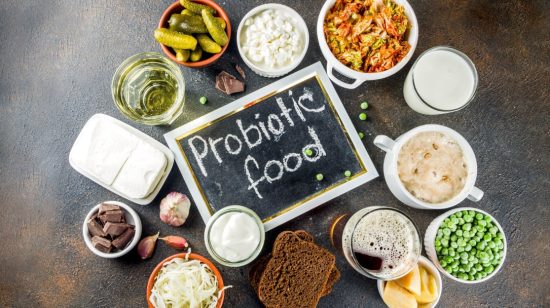
Probiotics have gained popularity in recent years for their potential benefits on gut health. These beneficial bacteria can be found in certain foods or taken as supplements. Incorporating probiotics into your diet may help restore the balance of healthy gut bacteria and alleviate symptoms of Diarrhoea.
One way to introduce probiotics into your routine is by consuming yoghurt with live active cultures. These cultures contain strains of beneficial bacteria that can support digestive health. Look for yoghurts labelled as having “live and active cultures” to ensure you’re getting the maximum benefit.
If you prefer a supplement form, there are various probiotic options available on the market. It’s important to choose a reputable brand with strains specifically targeted for gastrointestinal health.
When taking probiotic supplements or consuming yoghurt, it’s essential to follow dosage instructions carefully and be consistent. Results may vary from person to person, so it’s best to consult with a healthcare professional before starting any new regimen.
5. Manage Stress
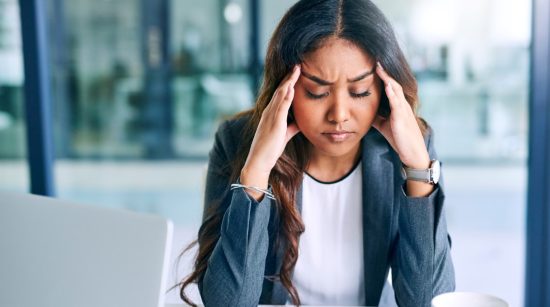
Stress often exacerbates diarrhoea symptoms, making it crucial to address stress management techniques. Engaging in relaxation practices like deep breathing, meditation, and yoga can effectively alleviate Stress and improve gut health.
By incorporating these methods into your daily routine, you can promote overall well-being and reduce the frequency and severity of diarrhoea episodes. However, if symptoms persist or worsen, it’s essential to seek guidance from a healthcare professional for further evaluation and treatment options. Remember, prioritizing your mental and physical health is key to achieving a happier and healthier life.
6. Medications

Medications can be a helpful option when it comes to managing diarrhoea symptoms. Over-the-counter anti-diarrhoeal medications like loperamide (Imodium) are widely available and can provide relief by reducing the frequency of loose stools. However, it is important to remember that there are better approaches than self-medication.
Before reaching for any medication, it is advisable to consult with a healthcare professional. They can assess your specific situation, take into account any underlying medical conditions or potential drug interactions, and provide personalized recommendations. This step is crucial in ensuring that you choose the right medication and dosage for your needs.
While over-the-counter anti-diarrhoea medications can help alleviate symptoms temporarily, they do not address the root cause of diarrhoea. It’s essential to stay hydrated and replenish lost fluids through other means as well.
Remember, each individual’s health circumstances are unique, so consulting with a healthcare professional will ensure that you receive appropriate guidance tailored specifically to your needs.
When to Consult a Doctor for Diarrhoea?
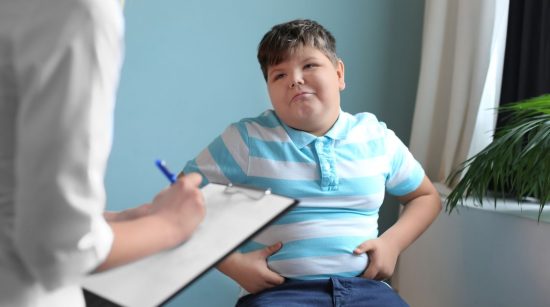
While most cases of Diarrhoea are not serious and can be managed at home, there are certain situations when it’s important to seek medical attention. Here are some signs that indicate you should consult a doctor:
- Frequent or chronic Diarrhoea: If your Diarrhoea persists for more than a few days or keeps recurring, it may be a sign of an underlying condition that requires medical evaluation.
- Severe abdominal pain or cramping: Intense abdominal pain accompanied by diarrhoea could signal a more serious issue, such as inflammatory bowel disease, infection, or obstruction.
- Serious symptoms of dehydration: Diarrhoea can lead to excessive fluid loss from the body, causing dehydration. Seek medical help if you experience severe thirst, dizziness, rapid heartbeat, dry mouth and skin, decreased urine output, or dark-coloured urine.
- Stool containing blood or pus: Bloody stools can indicate various conditions like infections, ulcerative colitis, Crohn’s disease, or even colon cancer. Pus in the stool may suggest an infection that needs immediate attention.
Remember that this is not an exhaustive list, and individual circumstances may vary. If you have any concerns about your symptoms or if they worsen despite taking measures to manage them at home, it’s always best to consult with a healthcare professional for proper diagnosis and appropriate treatment options.
Conclusion
Diarrhoea is a common and temporary condition that can be effectively managed with simple lifestyle changes. By following the tips mentioned in this article, such as staying hydrated, avoiding certain foods and beverages, incorporating the BRAT diet, considering probiotics, managing stress levels, and consulting a healthcare professional when necessary, you can find relief from diarrhoea symptoms.
Remember to listen to your body and give it the rest it needs during this time. With patience and proper care, you can stop diarrhoea and return to feeling like yourself again. Take care of your health, and stay well!
FAQs – How to Stop Diarrhoea?
How long can diarrhoea last?
Most cases of Diarrhoea clear up within 1 to 3 days. However, if it persists for longer than 3 days, it’s best to consult a doctor.
Should I eat if I have diarrhoea?
Yes, eating can help your body recover. Stick to bland, easy-to-digest foods like the BRAT diet (bananas, rice, applesauce, toast). Avoid dairy, greasy foods, and fiber-rich options that can worsen symptoms.
How can I harden my stool?
Over-the-counter medications like loperamide (Imodium) can slow stool production, but always consult your doctor before taking any medication. Certain foods like bananas and white rice can also help firm up stool.
What are the 4 types of diarrhoea?
- Acute Diarrhoea: Short-lived (less than 2 weeks) caused by viruses, bacteria, or food poisoning.
- Chronic diarrhoea: Lasts longer than 4 weeks, often due to medical conditions or intolerances.
- Secretory Diarrhoea: Excessive fluid secretion in the intestines, often caused by infections or medications.
- Osmotic Diarrhoea: Undigested food or sugar draws water into the intestines, causing loose stools.
Does yoghurt help Diarrhoea?
Yogurt with live cultures (probiotics) may help shorten the duration of Diarrhoea by restoring gut bacteria balance. However, consult your doctor first, especially if you have weakened immunity.

